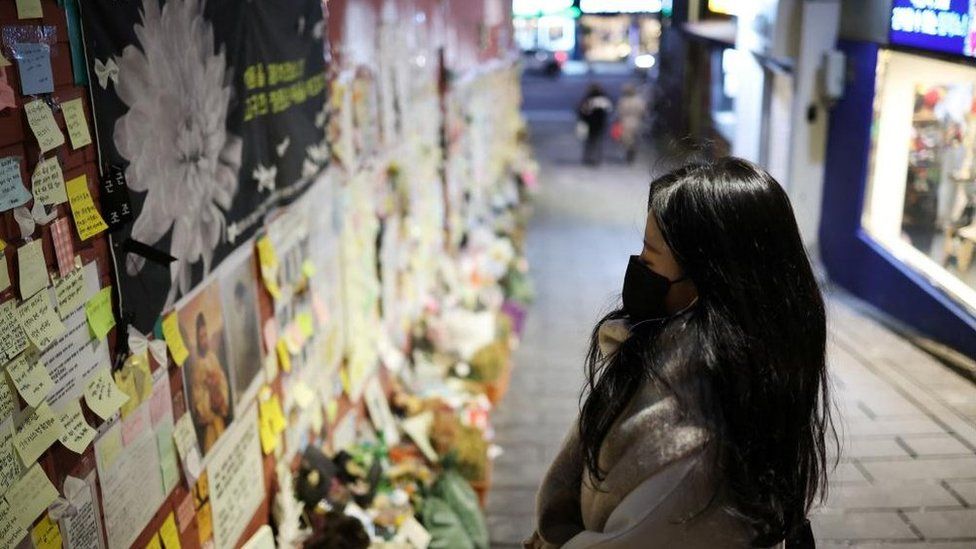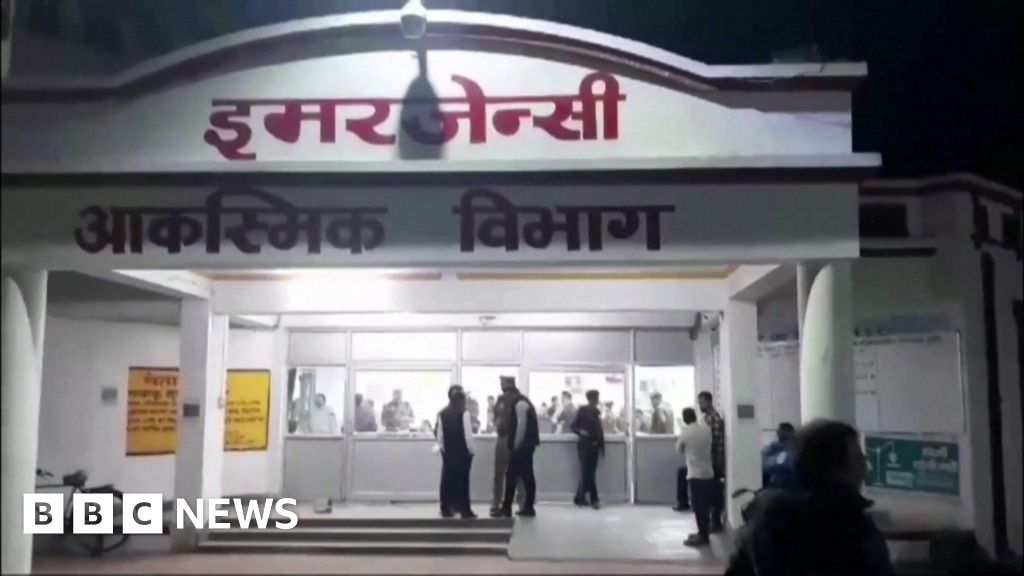ARTICLE AD BOX
 Image source, Reuters
Image source, Reuters
The crush happened in a narrow sloping alley
By Nick Marsh in Seoul and Kelly Ng
BBC News
A long-awaited report into last October's deadly crowd crush in Seoul has largely spared senior government officials from blame.
The report instead held local municipal and emergency service officials responsible for weak planning and a poor emergency response.
Bereaved father Lee Jung-min told the BBC the report was "cutting off the lizard's tail to spare the head".
The deadly crush killed 159 mostly young people who were out partying.
They had flocked to Seoul's Itaewon district, a popular nightlife district with narrow streets and alleys lined with bars and restaurants, to celebrate Halloween. Some accounts say more than 100,000 were in the area that evening.
Six people, including the former police chief of the local Yongsan district and the district's mayor, have been arrested on negligence charges.
Investigating officers have also recommended 17 others be prosecuted, including Seoul's chief of police.
Son Je-hwan, director of a special police division formed to investigate the tragedy, said it was "difficult" to say that city officials, the national police and the interior ministry, which oversees South Korea's police, had violated their duties.
Families of victims and the South Korean public had wanted higher-level officials to be held accountable. In December, South Korea's parliament passed a motion calling for the dismissal of interior minister Lee Sang-min.
Mr Lee, whose 28-year-old daughter Lee Joo-young died in the crush, told the BBC he wanted the "officials in command" to take responsibility.
"This means the interior minister, the national police chief, even the prime minister - they should all take responsibility," he said.
His daughter was in Itaewon with her fiancé, who passed out but survived, and the couple had been due to marry this year.
"I am determined to get an apology from those in power, so my daughter can close her eyes in peace. I've told her, Dad will do his best," Mr Lee said.
But Mr Son said local government, police, fire department and metro officials were among those who had a "legal responsibility to prevent and respond to disasters".
No preventive measures were taken in advance, and appropriate measures were not taken after emergency calls for help were received, the inspector said.
Incorrect assessments of the situation led to a delay in relaying information and lack of cooperation among organisations, he added.
"These multiple overlapping failures lead to vast number of human casualties," he said.
The special investigation unit investigated 548 people and analysed 180 videos from CCTV footage, social media and press materials.
The first call to the police came at 18:34 local time - hours before the deadly crush took place - and there were at least 10 more emergency calls from the area over the next three-and-a-half hours.
Records show that the police only mobilised officers for four of of these 11 calls alerting them to dangerous levels of overcrowding.

 1 year ago
31
1 year ago
31








 English (US)
English (US)